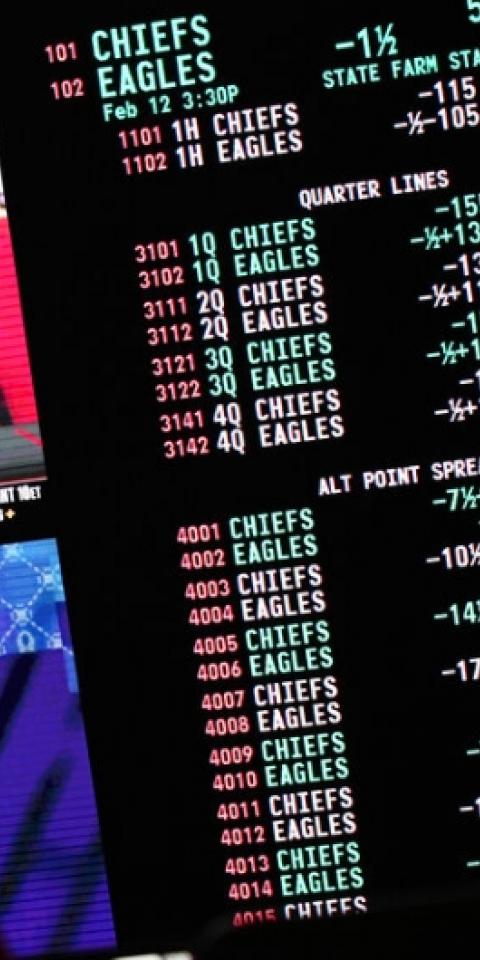Betting around expected value — either consciously or subconsciously — is one of the most important aspects of successful sports wagering.
At a basic level, expected value (or EV) is your expected chance of winning compared to the sportsbook’s implied odds. We’ll break down some examples below and how you can use EV to your benefit:
What Is Sports Betting Expected Value and How Does It Work?
As explained above, expected value is simply what you believe the true probability of your bet is, compared to the sportsbook’s implied odds. The best way to look at EV is by breaking down a betting market:
Let’s say the Philadelphia Eagles are +110 to win the Super Bowl, implying a 47.62 percent chance of winning, according to our odds calculator. But, either by your gut, some research or an Excel spreadsheet formula you’ve hatched in your basement, you think the Eagles actually have a 54 percent chance of winning the Super Bowl. In this circumstance, your EV is +6.38 percent (54 - 47.62).
- Sportsbook’s Odds: +110 (47.62 percent implied odds)
- Your Assumed Probability: 54 percent
- EV: +6.38 percent
Expected value can go both ways, though, and the sportsbook could have -120 odds for the Eagles that imply a 54.55 percent chance of victory. That line would give you -.55, or negative EV. In that case, you stay away or shop around for a better line.
Why is Expected Value Important?
It’s pretty self-explanatory, but expected value is important because it’s the basis of smart betting. If you pick random teams for every NFL game, you’re going to win some bets and lose others. But, if you only bet the games where you have positive expected value, it’s a far better recipe for success.
The one difficulty is, unless you have a betting algorithm or use NFL computer picks that track your expected probabilities for every pick, it’s hard to know exactly when you have positive EV. For casual bettors, you have to just go with your gut, survey the betting lines, and figure out whether or not those lines provide you with positive EV or not.
The Price of the Vig
It’s important to realize that a sportsbook’s odds don’t only reflect the book’s implied probability of each side winning. The vigorish, more commonly known as the vig or the juice, is essentially the book’s tax, and it’s baked into every line.
The vig is the slight moving of a line away from the true probability to ensure the sportsbook profits regardless of outcome. Let’s use the Super Bowl coin flip odds as a simple example:
- Tails -110
- Heads -110
At -110 odds, the implied probability of both heads and tails hitting on Super Bowl Sunday is 52.38 percent. Even if you think tails never fails, deep down you know the real probability of tails hitting is just 50 percent. So you can see that the sportsbook adds a 2.38 percent vig on each line, or 4.76 percent total, ensuring a profit regardless of outcome.
It may be more obvious for a bet like a coin flip that you’re not necessarily getting fair value for your bet, but an around five percent vig is pretty common for most sports betting markets.
Key Takeaways For Positive EV Betting
Most likely, you’re already utilizing the basics of positive EV betting, even if you’re just a casual wagerer.
You can’t just look at the teams and pick a winner; if you want to be a successful bettor, you have to look at the betting lines. Sure, you can think the Toronto Maple Leafs are going to win. But if they’re -500 (implied odds of 83.33 percent), maybe they’re not providing you with positive EV.
The best way to summarize this is: bet the line, not the team.
Sports Betting Expected Value FAQ
What Is Sports Betting Expected Value?
In terms of sports betting, expected value (or EV) is your expected chance of winning compared to what the sportsbook's odds imply the chance of your bet winning are. Positive EV means you're more likely to win than the odds imply.
What Is The Price Of The Vig?
The vig, or the vigorish, is essentially a sportsbook's tax on every line that ensures they profit regardless of the outcome of a bet.




